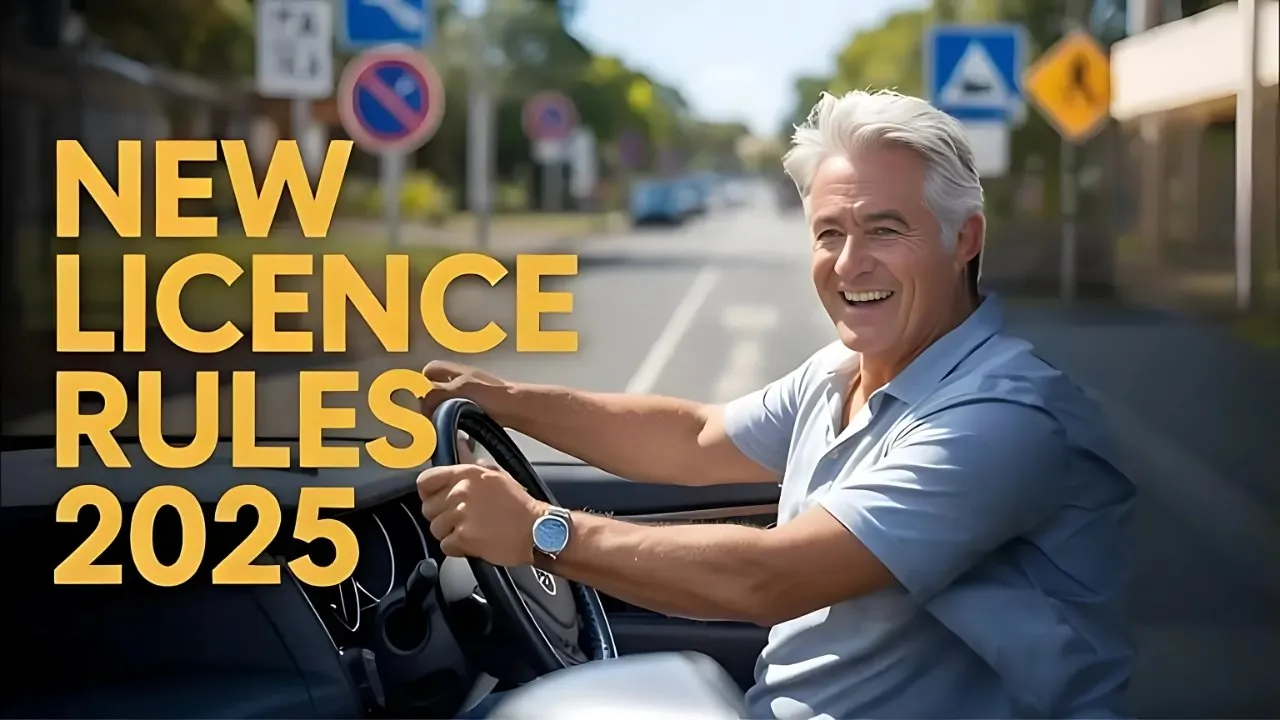Australia will roll out stricter driving licence rules from October 2025, directly affecting older drivers and those holding or converting overseas licences. The new measures are designed to improve road safety, with a sharper focus on medical fitness, vision requirements, and ensuring competency of all drivers on Australian roads. These changes mean that licences can be cancelled or suspended if drivers fail to comply with health checks or updated conversion regulations.
Why the New Rules Are Coming
With an ageing population and a growing number of overseas drivers, authorities have been reviewing policies to balance mobility with safety. Data shows that seniors over 70 are more prone to accidents caused by declining vision, slower reflexes, and underlying medical conditions. Similarly, overseas licence conversions without a practical assessment were viewed as a risk due to varying traffic systems globally.
By introducing stricter regulations now, the government aims to prevent avoidable accidents, ensure drivers remain medically fit, and improve competency standards for all motorists.
Mandatory Vision and Medical Assessments for Seniors
Drivers aged 70 and above will face new licensing hurdles from October. They will need to demonstrate medical and vision fitness before keeping, renewing or regaining their licence.
The changes include:
- Compulsory vision assessment: Drivers must pass an eye test conducted by an approved optometrist or medical professional.
- Mandatory medical certification: Adults over 70 will need certification from a doctor confirming their ability to drive safely. Conditions such as diabetes, cardiovascular issues, memory problems or dementia will be closely reviewed.
- End of self-declaration rules: Seniors can no longer self-certify their medical ability. Government-approved documentation will now be required for licence validity.
Drivers who fail to provide updated medical or vision proofs on time risk licence suspension or cancellation.
Licence Cancellation for Non-Compliance
Failure to follow the new requirements carries clear consequences. Drivers who skip assessments, provide incomplete or invalid medical clearances, or miss renewal deadlines will face:
- Licence cancellation
- Temporary driving bans
- Possible fines for non-compliance
These actions underscore the government’s determination to ensure only medically fit and competent drivers remain on the road.
Changes for Overseas Drivers
The October 2025 requirements also bring a major policy change affecting incoming residents and long-term visa holders driving on overseas licences. Until now, Australia operated an Exempt Country Scheme, allowing licence holders from certain countries to convert their licence without a driving test.
This exemption will end in October 2025.
- All drivers from exempt countries will be required to sit a practical driving assessment.
- Drivers from “Experienced Driver Recognition” status nations must undergo skills testing and additional training.
This move ensures that international drivers demonstrate familiarity with Australia’s rules, road signs, and driving conditions before being allowed unrestricted licences.
Digital Portals for Easier Submissions
To reduce stress and improve efficiency, the government will also roll out new self-service digital portals where drivers can upload and submit:
- Medical certificates
- Vision test results
- Renewal documents
Automated services will allow quicker verification and approvals, cutting wait times at Service Australia or transport offices. Seniors in particular will find the digital option helpful to avoid long paperwork delays.
Balancing Freedom and Safety
Officials emphasise that these changes are not about removing independence from senior drivers or restricting migrants but instead about ensuring safety for everyone. Older drivers who remain fit and healthy will still be able to drive without restrictions, provided they pass assessments. Migrants who wish to continue driving must simply demonstrate the same skills expected of any Australian motorist.
By focusing on practical measures like medical proof and skills testing, authorities aim to reduce accident risks while letting people enjoy the freedom of personal mobility.
How to Prepare for October 2025 Rules
Drivers who may be affected are advised to act early. Seniors and overseas drivers should:
- Book medical and vision tests in advance to avoid delays before renewal deadlines.
- Link their licence and details online through MyGov or state transport portals.
- Double-check documents to ensure certifications are complete and valid.
- Monitor renewal dates closely to prevent unintentional lapses that could trigger cancellation.
Overseas licence holders planning to convert should also prepare by practising Australian road rules and booking driving assessments sooner rather than later.
Benefits of the New Licensing Rules
While some drivers may feel burdened, experts argue that the benefits outweigh the inconvenience:
- Fewer accidents linked to vision or health issues.
- Higher driver competency across the board, including migrants new to Australian conditions.
- Greater public confidence that elderly drivers remain capable.
- Fairer system where every licensed driver passes practical testing.
Key Details of the October 2025 Licence Rules
| Category | Change | Possible Penalties |
|---|---|---|
| Seniors 70+ | Compulsory vision and medical assessments | Licence cancellation or suspension |
| Exempt Country Drivers | No more automatic conversion. Driving test required | Delayed licence approval, must pass assessment |
| Experienced Driver Recognition | Must undergo practical driving assessment and training | Non-issuance of licence without compliance |
| Non-compliance | Missing vision/medical certification | Licence cancellation, fines, temporary bans |
| Renewal System | Digital portal submissions available | Faster approvals, fewer delays |
Final Thoughts
The new Australian driving licence rules effective October 2025 represent a decisive step in prioritising road safety. Seniors will need to prove medical and vision fitness, while overseas drivers can no longer skip practical testing.
These rules may feel stricter, but they are built on the need to protect not just individual drivers but all road users. By enforcing medical checks and skills testing, the government ensures that drivers who stay behind the wheel are fully competent, alert, and capable.
For elderly drivers, the key to avoiding cancellation is keeping records up to date and booking tests promptly. For new arrivals, preparation for assessments will smooth the transition. Ultimately, safer licensing rules strengthen the balance between independence and responsibility on Australian roads.
